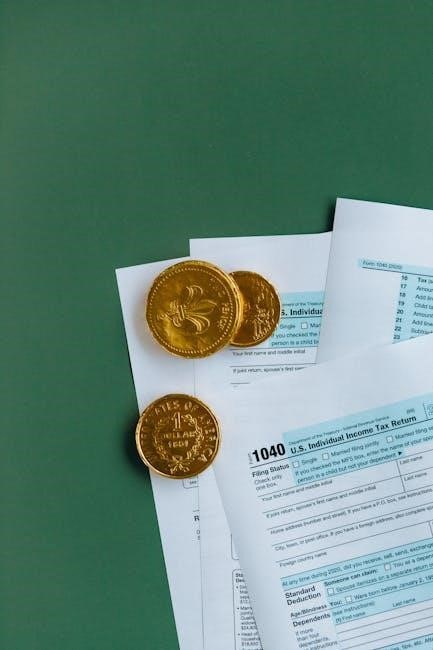Law and Economics Syllabus: A Comprehensive Overview
This syllabus provides a detailed outline for a course exploring the intersection of law and economics․ It introduces students to influential legal and economic concepts․ The course uses economic theory to understand laws and legal institutions․ Key areas include property, contracts, torts, criminal law, and legal procedures, offering a comprehensive view․
The study of law and economics is an interdisciplinary field devoted to understanding laws and legal institutions through the lens of economic theory․ This introductory section explores the fundamental principles of economic analysis as applied to legal frameworks․ The course begins by defining the scope of law and economics, emphasizing its role in both positive and normative analysis of legal rules and their effects․ We will explore how economic models can predict the behavioral responses to laws and regulations, offering insights into their likely impact on society․

Central to this exploration is understanding how laws create incentives and how individuals and firms respond to these incentives․ The course will delve into the core economic concepts such as efficiency, rationality, and equilibrium, demonstrating their relevance in evaluating legal outcomes․ Furthermore, the course examines the historical development of law and economics, highlighting key contributions and influential scholars in the field․ Students will learn to critically assess the strengths and limitations of the economic approach to law, considering alternative perspectives and potential biases․ This introduction sets the stage for more detailed analyses of specific legal areas, such as property, contracts, and torts․
Core Economic Principles in Legal Analysis

This section delves into the essential economic principles that underpin the analysis of legal rules and institutions․ We begin by examining the concept of rationality, a cornerstone of economic models, and explore its implications for legal decision-making․ The course investigates how individuals and firms are assumed to act in their self-interest, weighing costs and benefits to maximize their utility or profits within the legal constraints they face․ We then proceed to analyze efficiency, a key criterion for evaluating legal outcomes, differentiating between Pareto efficiency and Kaldor-Hicks efficiency․
The course scrutinizes how legal rules can promote or hinder efficient resource allocation․ Furthermore, we delve into the concept of transaction costs and their significant impact on legal and economic outcomes․ High transaction costs can impede efficient bargaining and resource allocation, often justifying legal intervention․ We also explore the role of information asymmetry in legal contexts, analyzing how unequal access to information can lead to market failures and strategic behavior․ The section concludes by examining the principles of game theory and its application to legal settings, modeling strategic interactions between parties and predicting equilibrium outcomes in legal disputes and negotiations․
Property Law and Economic Efficiency

This section explores the economic foundations of property law, focusing on how different property rights regimes affect resource allocation and economic efficiency․ We begin by examining the concept of property rights and their role in creating incentives for investment, innovation, and efficient resource use․ The course delves into the economic rationale for private property, emphasizing its ability to internalize externalities and promote efficient resource management․ We then analyze various types of property rights, including ownership, easements, and intellectual property, evaluating their economic consequences and trade-offs․

The section investigates the Coase Theorem and its implications for property law, exploring how bargaining between parties can lead to efficient outcomes regardless of the initial allocation of property rights, provided transaction costs are low․ Furthermore, we examine the economic analysis of eminent domain and the takings clause, assessing the conditions under which government takings of private property are economically justified․ The course concludes by analyzing the economics of intellectual property law, including patents, copyrights, and trademarks, examining their role in promoting innovation and creative expression while balancing the costs of monopoly power and restricted access․
Contract Law and Economic Incentives
This section delves into the economic principles underlying contract law, emphasizing how legal rules shape incentives for parties to enter into agreements, perform their obligations, and resolve disputes․ We begin by examining the economic functions of contracts, including facilitating trade, promoting efficient resource allocation, and mitigating risk․ The course analyzes the elements of contract formation, such as offer, acceptance, and consideration, from an economic perspective, evaluating how these requirements contribute to efficient contracting․
We then explore the economic implications of contract interpretation, focusing on how courts should interpret ambiguous contract terms to maximize economic efficiency․ The section investigates the economics of contract remedies, including expectation damages, reliance damages, and specific performance, assessing their effects on incentives for breach and efficient performance․ Furthermore, we examine the economic analysis of contract defenses, such as mistake, duress, and fraud, evaluating their role in preventing inefficient contracts and protecting vulnerable parties․ The course concludes by analyzing the economics of contract modification and termination, examining how legal rules affect parties’ ability to adapt to changing circumstances and exit contractual relationships․
Tort Law and Risk Allocation
This section explores the economic foundations of tort law, focusing on how legal rules allocate risk and incentivize efficient behavior to minimize accidents and injuries․ We begin by examining the economic goals of tort law, including deterring negligent behavior, compensating victims for their losses, and promoting efficient resource allocation․ The course analyzes the economic elements of negligence, such as duty of care, breach of duty, causation, and damages, evaluating how these requirements contribute to efficient risk management․
We then explore the economic implications of different liability rules, including negligence, strict liability, and no-fault systems, assessing their effects on incentives for precaution and compensation․ The section investigates the economics of damages in tort law, including compensatory damages, punitive damages, and non-economic damages, examining their impact on deterrence and fairness․ Furthermore, we examine the economic analysis of specific torts, such as product liability, medical malpractice, and environmental torts, evaluating their role in promoting safety and accountability․ The course concludes by analyzing the economics of tort reform, examining proposals to modify the tort system and their potential effects on efficiency and equity․
Criminal Law and Deterrence
This section analyzes criminal law through an economic lens, focusing on deterrence, punishment, and the allocation of resources in the criminal justice system․ We begin by examining the economic theory of crime, which views criminal behavior as a rational choice based on costs and benefits․ This course explores the role of criminal sanctions, such as fines, imprisonment, and capital punishment, in deterring criminal activity and promoting public safety․
We then investigate the economic effects of different sentencing policies, including mandatory minimums, three-strikes laws, and alternative sentencing programs, assessing their impact on crime rates and incarceration levels․ The section examines the economics of policing, prosecution, and defense, analyzing the optimal allocation of resources to maximize crime prevention and ensure fair trials․ Furthermore, we explore the economic analysis of specific crimes, such as theft, fraud, and violent offenses, evaluating the effectiveness of various crime control strategies․

The course concludes by analyzing the economics of criminal justice reform, examining proposals to reduce recidivism, improve rehabilitation, and address racial disparities in the criminal justice system․
The Economics of Legal Procedure
This section delves into how economic principles shape legal procedures, focusing on efficiency, accuracy, and fairness within the justice system․ The initial discussion centers on litigation, examining factors such as filing costs, discovery rules, and settlement negotiations through an economic lens․ This includes analyzing how these elements affect the likelihood of disputes reaching trial and the overall costs incurred by parties involved․
Next, the course considers the economics of evidence, assessing the value of different types of evidence and how evidentiary rules impact trial outcomes and accuracy․ We explore the role of legal representation and the economic incentives that influence attorney behavior, including fee structures and the allocation of legal resources․ Furthermore, the economic analysis of judicial decision-making is examined, considering factors such as judicial biases, incentives, and the impact of judicial rulings on economic outcomes․
The section concludes with an exploration of alternative dispute resolution mechanisms, such as arbitration and mediation, evaluating their efficiency and effectiveness compared to traditional litigation․ The goal is to understand how economic forces influence the design and operation of legal procedures, ultimately aiming to improve the overall efficiency and fairness of the legal system․
Regulation and Antitrust Law
This segment of the course explores the economic foundations of regulation and antitrust law․ It begins with an examination of the rationale for government intervention in markets, focusing on instances of market failure such as monopolies, externalities, and information asymmetry․ Different types of regulation, including price controls, quantity restrictions, and quality standards, are analyzed for their economic effects on consumers, producers, and overall market efficiency․
The study of antitrust law encompasses an in-depth look at the economic principles underlying competition policy․ This includes analyzing the impact of mergers and acquisitions on market concentration and consumer welfare, as well as evaluating various types of anti-competitive conduct, such as price fixing, predatory pricing, and exclusive dealing arrangements․ The course will also cover the role of antitrust enforcement agencies and the economic challenges involved in detecting and deterring anti-competitive behavior․
Furthermore, this section investigates the interplay between regulation and innovation, considering how regulatory policies can either promote or hinder technological advancements and economic growth․ Case studies of specific industries, such as telecommunications, energy, and healthcare, will be used to illustrate the practical application of economic principles in the context of regulation and antitrust law, providing a comprehensive understanding of their real-world impact․
Intellectual Property Law and Innovation
This section delves into the economic analysis of intellectual property (IP) law, examining its role in fostering innovation and economic growth․ The course explores the economic justifications for granting exclusive rights to creators and inventors through patents, copyrights, trademarks, and trade secrets․ It analyzes how these rights incentivize the creation and dissemination of new knowledge and creative works while also considering the potential costs associated with restricting access and competition․

The course will cover the key principles of patent law, including the requirements for patentability, the scope of patent protection, and the economic effects of patent thickets and patent trolls․ It will also examine the economic implications of copyright law, focusing on issues such as fair use, digital rights management, and the balance between protecting creators’ rights and promoting access to information․ Furthermore, the section investigates the role of trademarks in facilitating consumer choice and protecting brand reputation․
Additionally, this segment explores the dynamic interplay between IP law and technological change, considering how legal frameworks must adapt to new forms of innovation, such as software, biotechnology, and artificial intelligence․ Case studies will be used to illustrate the complex economic trade-offs involved in designing effective IP policies that promote innovation while ensuring competition and consumer welfare, offering a nuanced perspective on this critical area of law and economics․
International Trade Law and Economic Development
This section examines the intersection of international trade law and economic development, focusing on how legal frameworks shape global trade patterns and influence the economic prospects of nations․ It explores the economic theories underlying free trade, such as comparative advantage, and analyzes the potential gains from trade, including increased efficiency, lower prices, and greater product variety․ The course also addresses the distributional effects of trade, considering how trade liberalization can impact different sectors, industries, and groups within a country․

The section delves into the legal institutions governing international trade, primarily the World Trade Organization (WTO), examining its role in promoting free trade, resolving trade disputes, and fostering economic cooperation․ It analyzes the key principles of WTO law, including non-discrimination, national treatment, and the use of tariffs and other trade barriers․ The course also explores the challenges and opportunities associated with regional trade agreements, such as the North American Free Trade Agreement (NAFTA) and the Trans-Pacific Partnership (TPP)․
Furthermore, this segment investigates the relationship between international trade law and economic development, considering how trade can be a powerful engine for growth and poverty reduction․ It examines the role of trade in promoting technology transfer, attracting foreign investment, and fostering innovation․ The course also addresses the challenges faced by developing countries in participating in the global trading system, including issues such as market access, capacity building, and the protection of intellectual property rights, providing a balanced perspective on the complexities of international trade and its impact on global economic development․

Behavioral Law and Economics
This section delves into the fascinating field of Behavioral Law and Economics, which integrates insights from psychology and behavioral science into the traditional economic analysis of law․ It challenges the assumption of perfect rationality that underlies much of classical law and economics, recognizing that individuals often make decisions that deviate from the predictions of rational choice theory․ The course explores various cognitive biases and heuristics that influence human behavior, such as framing effects, loss aversion, and present bias․

The section examines how these behavioral insights can be applied to various areas of law, including contract law, tort law, and criminal law․ It analyzes how cognitive biases can affect individuals’ decisions to enter into contracts, take risks, or commit crimes․ The course also explores the implications of behavioral findings for the design of legal rules and policies, considering how laws can be crafted to nudge individuals toward more socially desirable outcomes․
Furthermore, this segment investigates the use of behavioral interventions, such as default rules, framing, and social norms, to promote compliance with the law and improve decision-making․ It examines the ethical considerations associated with using behavioral techniques to influence behavior, considering the potential for manipulation and the importance of transparency and autonomy․ The course also addresses the limitations of behavioral law and economics, recognizing that behavioral findings may not always be generalizable and that individuals may respond differently to behavioral interventions in different contexts, offering a nuanced understanding of this evolving field;

